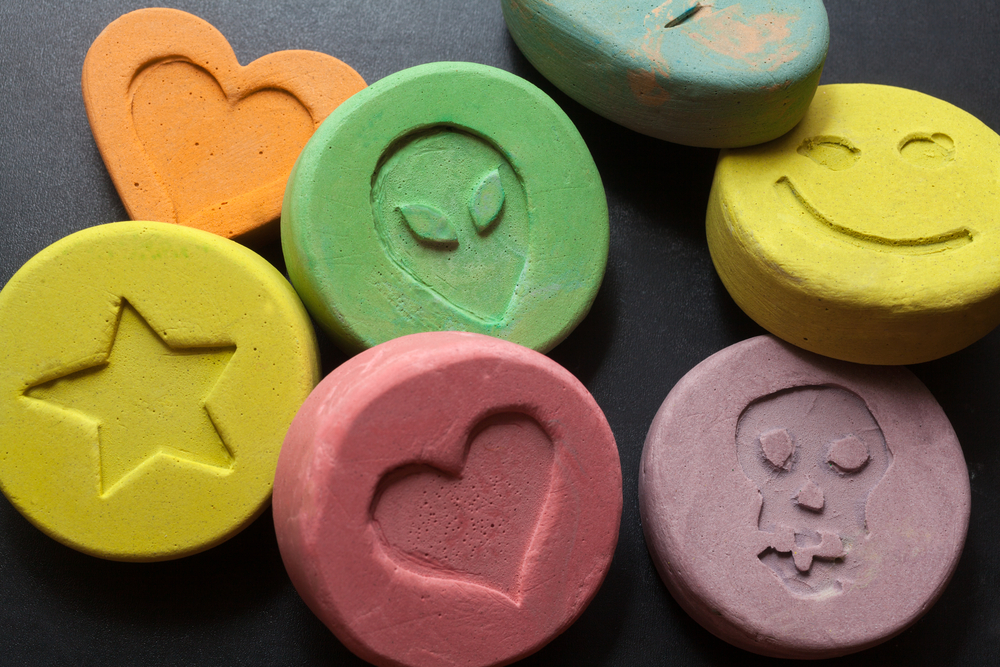Here’s an open secret: taking designer drugs at parties or festivals is common practice in the Netherlands. 💊
Ecstasy, MDMA, 2C-B, ketamine, or cocaine — if you visit a Dutch festival, you can probably even get your drugs checked for purity at so-called ‘drug control stalls.’
We know that the Dutch have a laissez-faire attitude toward cannabis, but why does this liberalism extend to much harder synthetic drugs?
What is it?

Grinding jaws, endless energy, and widened pupils — if you know what to look for, you’ll find the signs of drug use at any ordinary party or festival in the Netherlands.
Drugs use in the Netherlands
Especially among young adults, party drugs are ever-popular. The percentage of people who have tried ecstasy at some point in their lives is far higher than in any other European country, says the National Drug Monitor.
READ MORE | Your complete guide to drugs in the Netherlands
The same trend goes for other drugs. In 2020, more than a quarter (26,2%) of party-goers aged 16 to 35 opted for a line of cocaine before hitting the dancefloor.
Persecution of hard drugs in the Netherlands
While drug use of this scale might also occur in other countries, the Netherlands undoubtedly has a liberal approach to dealing with it.
In the Netherlands, criminal law makes a distinction between soft drugs (think: alcohol, cannabis and psychedelic mushrooms) and hard drugs (think: LSD, cocaine, amphetamines etc.).
READ MORE | 7 practical questions about smoking weed in Amsterdam, answered
For both categories, the Dutch apply their (in)famous toleration policy.
Basically, drug use in itself is not a crime, but you’re technically not allowed to produce, carry or own any hard drugs.
Generally, this means that you won’t be prosecuted for carrying a pill or two of ecstasy. However, the drugs will most likely be confiscated, and you risk a fine.
Why do they do it?
If the banning of illegal and hard drugs is more forcefully pursued by other European countries, why isn’t it the same in the Netherlands?
Well, there isn’t a definite answer, but here’s a not-so-glorious fact about the lowlands: the Netherlands, alongside Belgium, is one of Europe’s biggest producers of amphetamines.
READ MORE | Pineapple or coke? 4,000 kilograms of cocaine found in pineapple pulp in Port of Rotterdam
In 2022, the police announced that they ‘only’ uprooted 93 production sites, much less compared to the previous years.
In 2019, Politico even said that the Dutch province North Brabant claimed the title of Europe’s biggest producer of synthetic drugs alone.
Then there is also the Port of Rotterdam, Europe’s biggest harbour, which represents a huge entryway for cocaine imports from South America into the Netherlands.
READ MORE | This Dutch city smokes the most weed in all of Europe (and no, it’s not Amsterdam)
In 2021, Dutch customs confiscated 1.6 tonnes of cocaine worth an estimated €127 million alone, says Euronews.
The liberal approach towards drugs in the Netherlands might, therefore, just be the police saying: “Well, if you can’t beat ’em…” 🤷♀️
Why is it quirky?
The Netherlands is such a small country; you might not expect it to be such a huge player in the global drug market.
What we know is that the Dutch are fairly relaxed when it comes to all kinds of controversial subjects.
From liberal approaches to sex education to prostitution or drugs — the Dutch simply live by ‘doe normaal.’
Should you join in?
We don’t recommend it. Hard drugs are still illegal, even in the Netherlands, and their production is not regulated very well.
What do you think of this Dutch quirk? Have you experienced it? Tell us in the comments below!